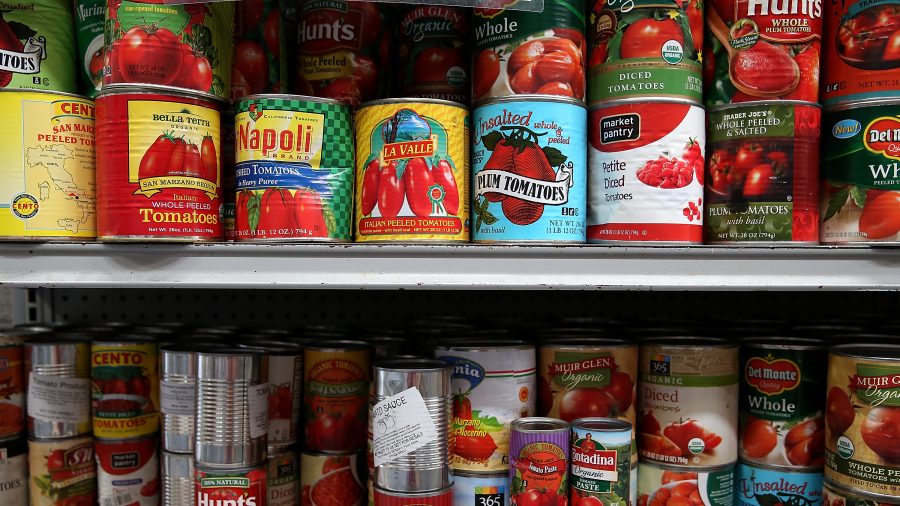A proposed Texas bill would ban people from using food stamps to purchase “junk food” like candy, soda, and chips.
HB 4364 (pdf) states that a food stamp recipient “may not use supplemental nutrition assistance program benefits to purchase: an energy drink, a sweetened beverage, a carbonated beverage,” or candy, potato or corn chips, or cookies “ordinarily packaged and sold for consumption without further preparation.”
The prohibition doesn’t apply to a milk product or a product containing milk or a milk protein; a milk substitute such as almond milk; or a beverage, other than an energy drink or soda, in which the only added sweetener doesn’t add calories to the beverage.
Further exceptions are stated as infant formula, a beverage manufactured for use for weight reduction, a fruit or vegetable juice to which no sugar has been added, a beverage or other product recommended by a health care professional, a beverage that contains plant protein sources, or a product that is fortified with a vitamin or mineral and that contains a source of protein.

The bill was introduced by state Rep. Briscoe Cain, a Republican, in the House Committee for Human Sevices.
Cain’s staff told KHOU that nearly 3 million people in Texas have diabetes and that data shows diabetes and pre-diabetes cost Texans an estimated $23.7 billion every year.
“At-risk Texans and families who utilize the Supplemental Nutrition Assistance Program are often the most susceptible to diabetes and the serious complications associated with it,” Cain added.
“HB 4364 seeks to curb the spread of diabetes and other health complications among Texans in at-risk populations by eliminating sugary drinks and snacks from the state’s nutrition assistance program.”

Alabama Bill
The Texas bill came around the same time an Alabama representative introduced a bill that would require drug tests for some Alabama food stamp recipients.
Under existing law, no food stamp applicants are required to be tested for illegal substances, nor are current recipients required to be tested to stay on the program, known as SNAP (Supplemental Nutrition Assistance Program).
“This bill would require an applicant for SNAP benefits to be tested for substance abuse if there is reasonable suspicion that the person who uses or is under the influence of a drug,” according to a synopsis of the bill, HB 3.
That includes the person having a conviction for the use or distribution of a drug without a prescription within five years of applying for SNAP benefits and testing positive for drugs in a prior test.
If the applicant or recipient fails a drug test twice without a valid prescription, that person would be ineligible for food stamps.
If the person failing testing twice was a parent of a dependent child, that parent could designate a third party to receive the benefits for the dependent child.
The Department of Human Resources would pay for the initial drug test but any subsequent drug screening would be paid for by the person being screened. If they test negative, the department would reimburse them.
Anyone who refused to undergo a drug screening or delayed it beyond a time set by the department would not be eligible for SNAP.
The bill was introduced by its sponsor, state Rep. James Hanes, a Republican, on Tuesday and referred to the House’s Judiciary Committee.
“It’s time to eliminate food stamp fraud,” Hanes previously told WAAY. “In order to better provide for families who are in need, this issue must be addressed. We owe it to the working-class taxpayers to make this program as efficient and waste-free as possible.”
If passed, Hanes told the Montgomery Advertiser in an email, the bill “will help assure minors living in the households (receiving SNAP) will get proper nourishment,” adding that “the working-class citizens of this state have been asking for this type of legislation for years.”
Approximately 850,000 Alabama residents received food stamps per month in 2016, according to the U.S. Department of Agriculture. That’s roughly 6 percent of the state’s population.


